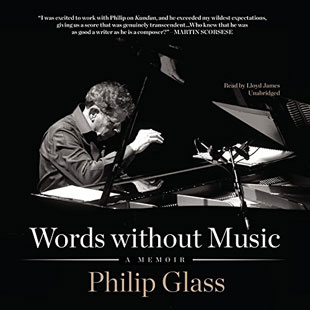In 1987, Time magazine named Philip Glass the "hottest composer in the world." With a streak of independence that has served him well, he has had an out-of-the-box career as a composer of symphonies, operas, and film scores. Glass inherited from his father, who sold records, a work ethic that allowed him to do everything from furniture moving to driving cabs when he needed money. Whereas his survival skills carried him through hard times, Glass was not so fortunate in intimate relationships. He married four times.
Glass entered college at the age of 15 and went to Julliard but the real life-transforming experiences came when he lived in Paris from 1964 to 1966. Two teachers had an immense impact on his creativity: one was the Indian sitarist Ravi Shankar whose music pulsated with rhythm, and the other was Nadia Boulanger who taught him about harmony and counterpoint. While overseas, Glass was caught up in the experimental theatre scene swirling around Samuel Beckett. Later in his career, this wunderkind wrote "Einstein on the Beach," an avant-garde opera directed by Robert Wilson from the theatre world.
Although he grew up in Baltimore in a secular Jewish family intrigued by Quaker teachings, Glass was drawn to the Eastern spiritual traditions with their emphasis on energy, music, mantras, and practices. Glass's tribute to Gandhi "Satyagraha" (the title means "truth force" in Sanskrit) is one of the best things he has done. We are also fans of the music he wrote for the film Koyaanisqatsi. We enjoyed hearing the travel notes sprinkled thorough this robust and always fascinating memoir.
The reader is Lloyd James who has been narrating since 1996 and has recorded over 600 books. He does a sensational job piloting us through15 hours on 12CDs.
